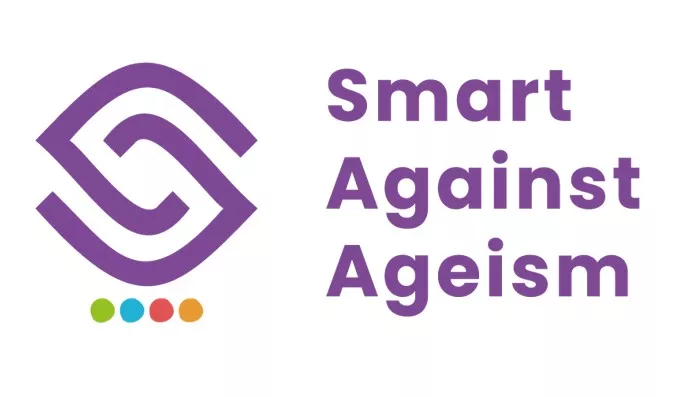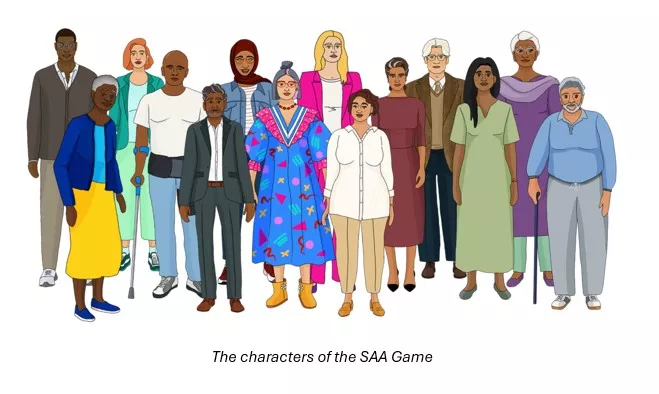Become Smart Against Ageism!
What is ageism?
Negative stereotypes, prejudices and discrimination based on age are known as “ageism”, which has been shown to cause cardiovascular stress, lowered levels of self-efficacy and decreased productivity. Across the EU, certain practices still reflect ageist prejudices and deprioritise, disregard, or even exclude older adults. Examples include health guidelines that only provide certain treatments for certain age groups, or educational programmes, insurance contracts and job offers with age limits.
In this regard, ageism has a major impact on people and society as it affects our own self-perception and ability to participate. This influences health, well-being and even lifespan. For example, ageism is associated with earlier death (by 7.5 years), poorer physical and mental health, and slower recovery from disability in older age.

Become Smart Against Ageism!
Our newest learning offer SAA (Smart Against Ageism) aims to reflect on ageism, giving multiple incentives to tackle assumptions against other individual based on their age! Under the Erasmus+ programme, organisations from Germany, Portugal, Belgium, Lithuania, Bulgaria and the Netherlands have developed multiple learning materials. In the following, you can get an overview of the various SAA results and outcomes:
The compendium ‘Responding to ageism’ gathers personal experiences of ageism and strategies to deal with it. It is based on the perspective of five European countries (Portugal, the Netherlands, Lithuania, Bulgaria, and Germany). In this context, interviews with over 40 affected adults and desk research were conducted. The outcomes had been compiled in the compendium and hence built the fundament for all of the SAA learning materials.
The SAA game is core of the project: It serves to identify ageism in various areas of everyday life and make it reflective for learners. The game deals specifically with the following areas: Job, Health, Social, Advocacy and Built environment. Within the narrative of the game, players take on the role of an equality manager who helps a large healthcare institution deal with complaints from people based on ageism. The aim is to better understand the different fates of the fictional individuals and to identify ageism more clearly in everyday life. A special feature is that the content of the game can be used by trainers for their workshop sessions.

The SAA game guide is designed to provide learners of the educational online game with background knowledge on the diverse areas where ageism occurs (Job, Health, Social, Advocacy, Built environment). Here you will find guidelines to reduce ageism, as well as direct references to the game situations. At the end of the document, you will also find an overview of the results of the SAA project and other resources. The game guide is available in seven languages.
The SAA trainer toolkit is specially designed for trainers and coaches who want to work on the topic of ageism. It describes various methods and offers inputs and impulses so that the participants can talk together about possible intervention strategies and their own experiences in such situations. A special feature is that the content of the game can be used by the trainers in their workshops. For this purpose, also a dedicated workshop section has been created on the website.
The SAA policy recommendations document contains political suggestions from the European partner countries concerning ageism. The collection of examples of good practices is aimed at political decision-makers and associations. By addressing ageism on a structural level, the policy recommendations can serve to support and inspire future measures against ageism.
Join our mission!
If the offer seems interesting to you, please visit our SAA e-learning platform, where you will find all the materials and further explanations on the topic of ageism: https://saa-game.eu/




